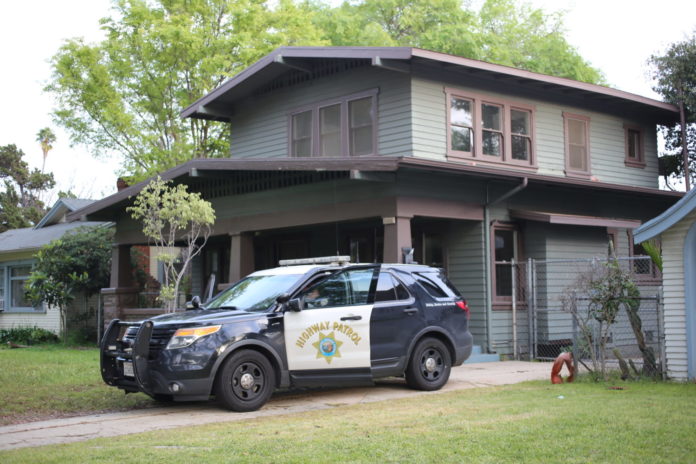
UPDATE on March 19, 2021
After an 80-minute discussion Wednesday night, the City Council voted to 4-0, with Council Member Evelyn Zneimer abstaining, to support SB 381 subject to amendments that may be made after a March 29 community forum with Sen. Portantino to answer questions and take input on the plan.
The deliberations will continue at the Council’s regular April 7 meeting, or possibly at a yet-to-be-schedule special meeting. Also, instead of approving the $180,000 CivicStone contract, the Council authorized the Interim City Manager, if needed, to approve through April 7 extensions to an existing $25,000 purchase order under which CivicStone has already been supplying services to the city.
The votes came after the Council heard considerably more opposition to the existing plan from Caltrans tenants, former City Council member Dr. Robert Schneider, and others.
Original publication: March 17, 2021
The South Pasadena City Council on Wednesday is poised to consider sponsorship of a senate bill aimed at resolving the most tangible and lasting adverse impact of Caltrans’ ill-fated effort to build a freeway through the middle of town: the uncertain status of dozens of dilapidated residential properties Caltrans acquired a half century ago in the freeway’s right-of-way.
The Council is also set to authorize a $180,000 unbid contract with Chino Hills-based CivicStone LLC to prepare and implement details of a complicated plan to obtain and rehabilitate up to 68 of the properties through amendment to the 1979 Roberti Bill and Caltrans’ much-delayed Affordable Sales Program. The Council will also discuss terms of the Caltrans deal with staff during a closed session.
The new legislation amends the Roberti Bill on the disposal of state-owned residential property. It preserves the priority of the current occupants of single family Caltrans properties in South Pasadena to purchase their homes, but if they decline or can’t close escrow within 180 days, the city gets a chance to make the purchase. It also gives the city first priority to purchase unoccupied residential properties.
Critics such as the South Pasadena Preservation Foundation say the plan has not been sufficiently vetted by tenants or the community, is being rushed, is unnecessary, creates a risk of unintended legislative changes, and won’t advance ownership of the properties, restoration of the neighborhoods or return the properties to the tax rolls. They also say it differs from the plan described during the one neighborhood meeting city officials held in late January.
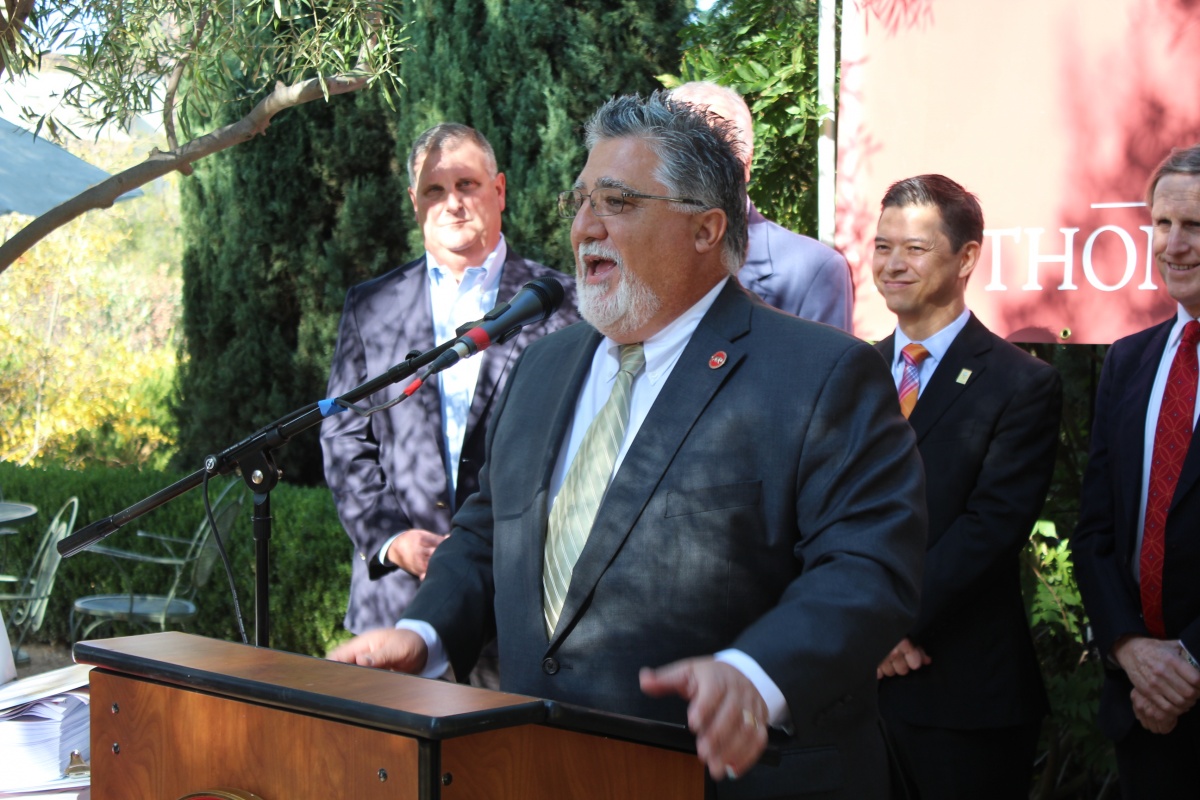
Sen. Anthony Portantino (D-25), who will be phoning in to Wednesday’s meeting, is the official author of SB 381, which he said the city asked for “to give them more local control over the dispensation of the properties in South Pasadena.” He said it would empower the city to acquire the properties at Caltrans’ original acquisition price and transfer title to a city-approved public or private housing-related entity (HRE).
As a condition of the low acquisition price, the HRE would be required to operate the properties under 55-year covenants guaranteeing they remain affordable for ownership or rent by people of low or moderate income.
The plan would likely leave most of the properties as rentals owned by entities exempt from property taxes. The prospect of being able to obtain them at Caltrans’ original cost could create some financing headroom to pay for rehabilitation and make up at least a portion of decades of lost property tax revenue.
The city is reviewing how to fund the purchase but will likely consider going through the recently created San Gabriel Valley Regional Housing Trust, which has unique access to certain state affordable housing funds that the city would equally match using other programs.
The title would pass either to the city’s existing HRE governed by the city council or a community land trust overseen by a 5- to 7-member board composed of two city council members or council appointees, and potentially representatives of the community and/or tenants.
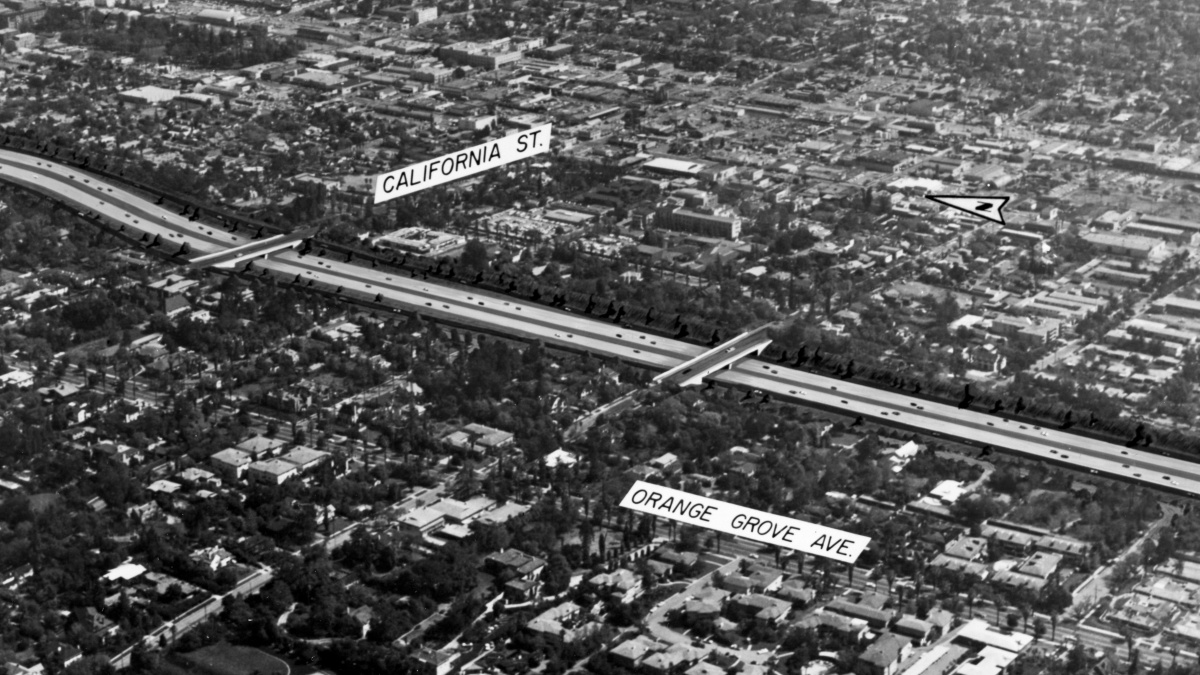
“Selling the houses is not a new idea,” Senator Portantino told the South Pasadenan News. “A common goal shared by everybody is to get Caltrans out of the property management business. The question is how to do it fast and fair.” The SR 710 extension corridor includes some 460 properties in El Sereno, Pasadena and South Pasadena and there’s “a difference of opinion” over how the communities want to go about the disposition of properties.
For over two years, Sen. Maria Derazo (D-24) has been pushing legislation reflecting the City of Los Angeles’ approach, under which the properties in El Sereno would be sold directly to independent HREs and offering existing tenants less standing to act first to purchase their homes. The current version of the bill, SB 58, has passed the Senate and is set for a March 18 hearing in the Assembly’s Appropriations Committee.
By contrast, Portantino said, SB 351 would apply to South Pasadena and “empower it to be the regulatory agency and control the process,” offering flexibility on buyer selection and keeping some of the dollars from sales in town. In the weeks ahead, provisions to strengthen protections for the relevant historic properties and districts in town will be drafted. Somewhere between one and two dozen of the 68 South Pasadena properties are thought to have historic value.
The bill lets the city buy uninhabited properties, while giving purchase protections to the tenants in occupied properties, he summarized.
Portantino is working with the City of Pasadena to put together a similar bill for that city. Assm. Chris Holden has also authored a bill, AB 512, that would apply to all three cities.
The South Pasadena Preservation Foundation is wary. It put out a statement this week saying the plan under SB 381 is being rushed and wants the Council to put off all three Caltrans-related agenda items “to allow time for proper community consultation and full consideration of all available options.”
The actual language of the legislation was only made public last week. It was drafted largely by the City Council’s ad hoc Caltrans Housing Subcommittee composed of Mayor Diana Mahmud and Council Member Jack Donovan working with Interim City Manager Sean Joyce and CivicStone principal Adam Eliason. The latter two have previously worked together on affordable housing solutions in South Pasadena and Irvine.
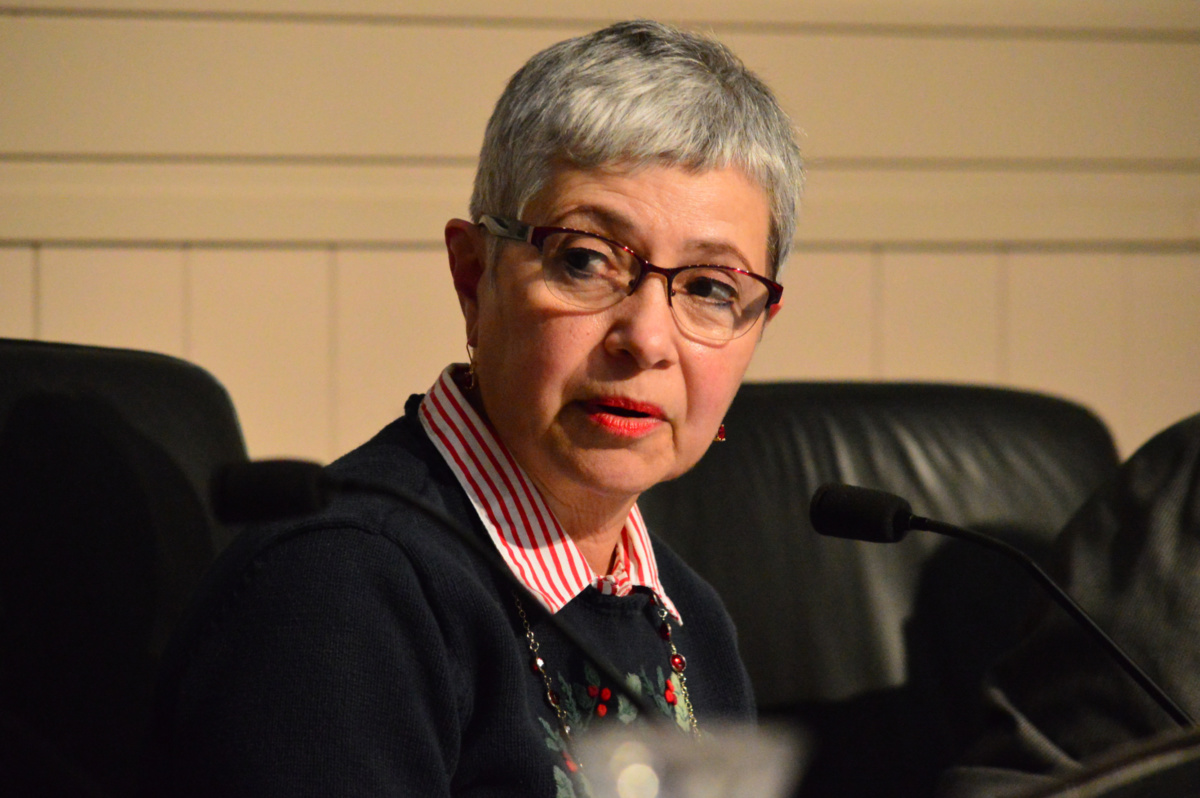
The ad hoc committee took its cue after a late January meeting of the California Transportation Commission, which signaled its interest in transferring Caltrans’ surplus property management duties to another agency — a development Mahmud said could further slow the state’s disposal of 710 corridor properties. She indicated the need to move ahead with the SB 381 program is underscored by the legislative schedule as well as the growing impatience over the condition and status of the properties among their tenants and in the neighborhoods where they are located.
But the hybrid amendments in SB 381 are “unnecessary,” said SPPF board member Joanne Nuckols. The legislation is “an expensive solution in search of a problem that does not exist.” She said both “the Roberti process for tenant-occupied houses and the partnership process for vacant houses could be started tomorrow to begin restoration of the fabric of our neighborhoods after decades of Caltrans occupation. We need to get these properties bringing in property tax again, which is the largest source of cash in our general fund.”
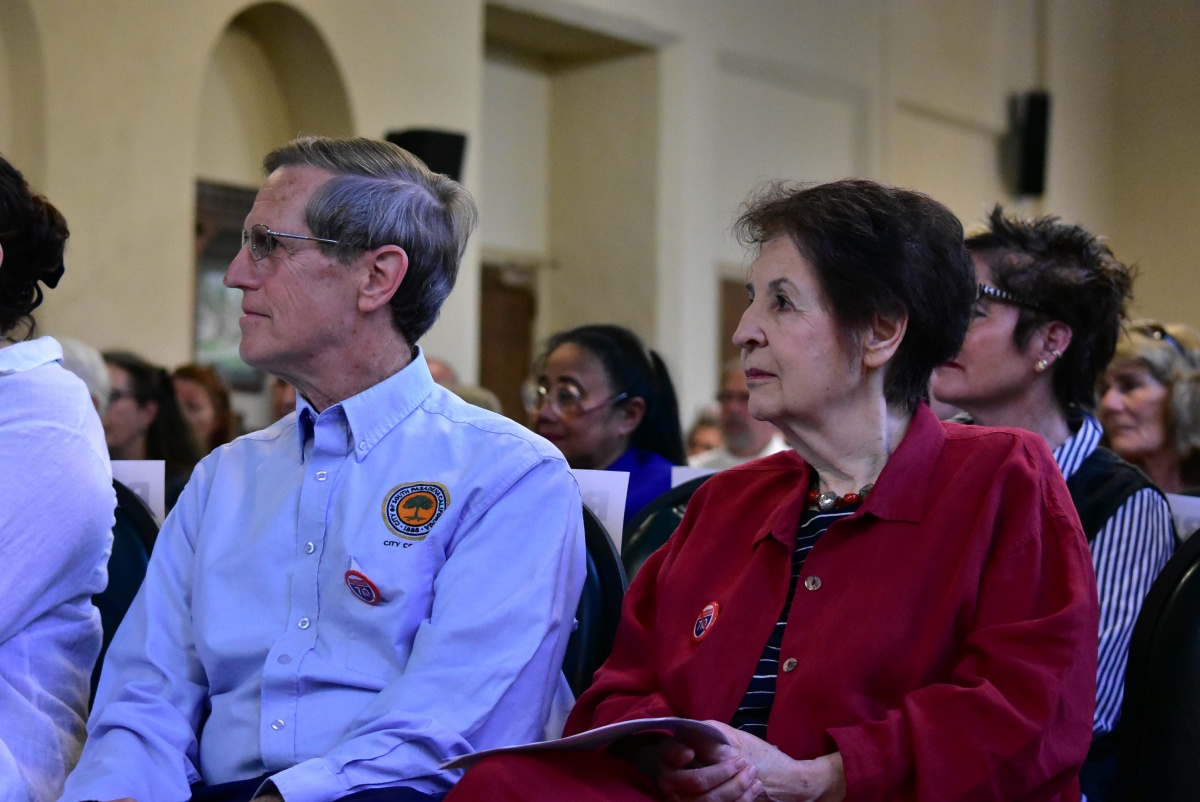
“This new bill could result in simply trading one slumlord agency (i.e., Caltrans) for possible unscrupulous private HREs managing the properties,” added resident Delaine Shane. “Historically, code enforcement within our own city has been spotty and has not been equitable…It is not reasonable to assume that the HRE would always do the right thing when there would be virtually little to no oversight by City staff.”
But “accountability is my overarching theme,” Mahmud told the South Pasadenan News. “How does the city make sure that what is acquired as affordable housing property remains affordable housing property? The structure we are proposing is the best way for the city to do that.” Affordable housing is “important to who South Pasadena is,” she said. “We need to maximize the opportunities” to create it.
It’s why she wants the city involved directly through a community land trust or indirectly through the city’s existing HRE. Either could impose inspections to ensure things are being done “according to expectations. Right now, if there is a problem, it has to rise to the level of code enforcement before the city can do anything.”
Proponents and opponents also have differing views on the outcomes of previous Caltrans property sales under Roberti such as the residential apartment at 626 Prospect, a deal for which the city recently lost to a Pasadena church; a transfer of about 30 properties completed in the 1990s and the sale of nearly a dozen properties to Beacon Housing Inc. that was overturned by a court in 2007.
“Ours is a nascent proposal,” Mahmud said. “There’s a lot of detail that has yet to be worked out,” such as gathering information on the properties themselves to decide which to purchase or rehab, and how to approach historic properties. A great deal of financial analysis and due diligence must also be done.
She said the city has discussed holding a community forum soon with Senator Portantino to explain the bill, though community input on the details of its implementation would be discussed only after the data and analysis is in.
“Once we get closer to the finish line and know that our bill will be enacted, we absolutely intend to hold community meetings and get the benefit of community input.”















.png)






